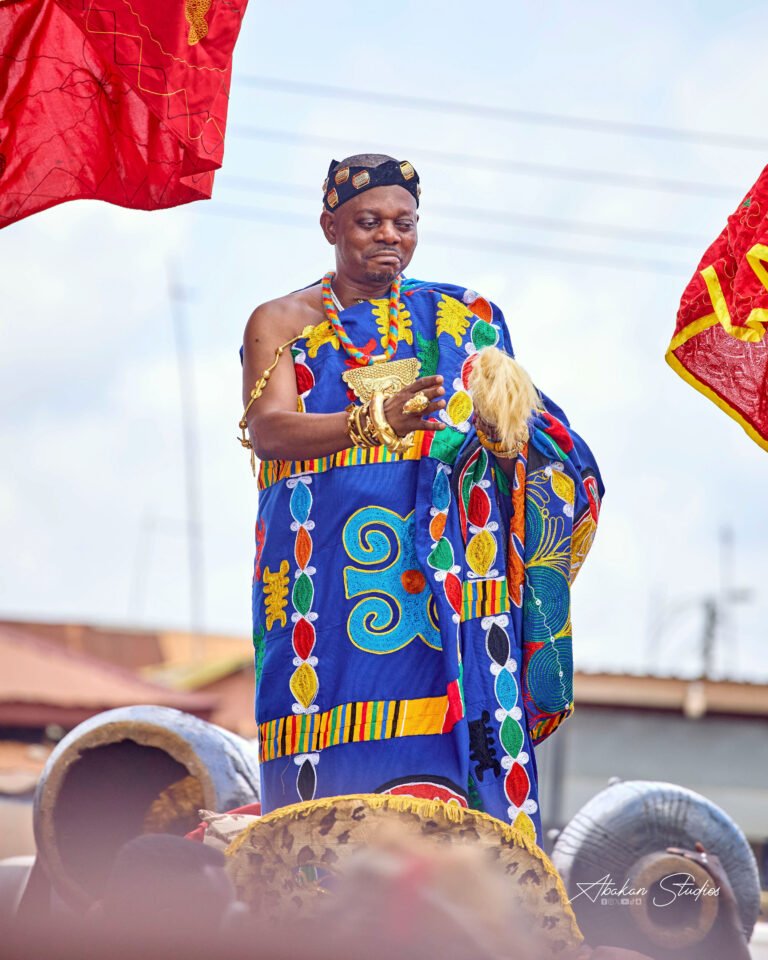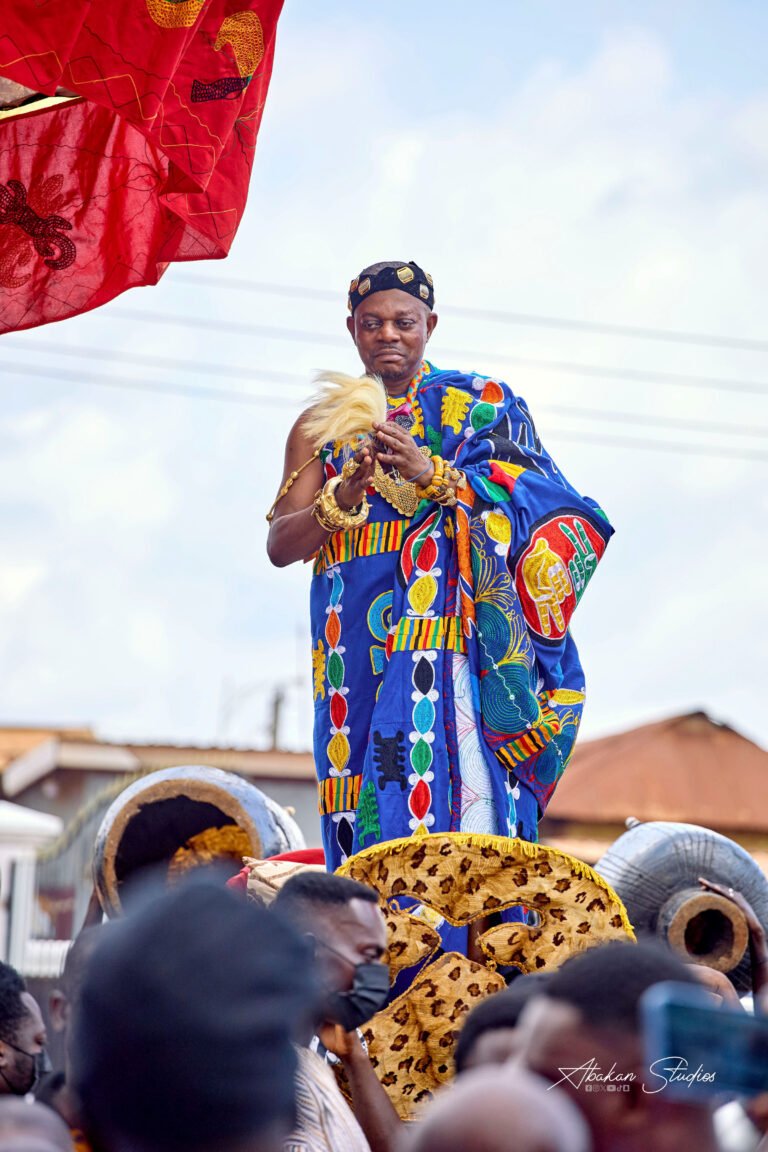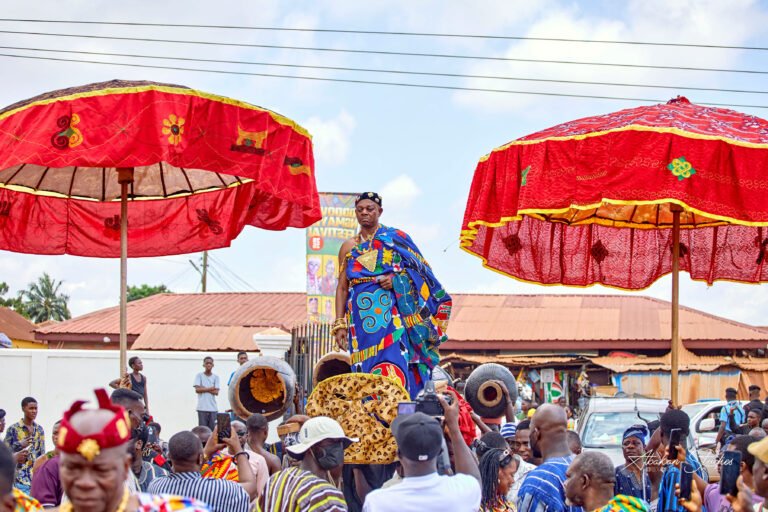Traditions Leaders
Profiles of Key Traditional Leaders of Dodowa
Beyond the titles and structures, the traditional leadership of Dodowa is defined by the individuals who hold these sacred offices. The following profiles provide a more detailed look at some of the key figures who actively shape the civic and cultural life of the community.
Nene Tei Kwesi Agyeman V (Traditional Ruler Of Dodowa And The President OF shai Traditional Council)



Nene Tei Kwesi Agyeman V is one of the most prominent and active chiefs in Dodowa. As the Wetso Matse (Chief) of Dodowa sub-division, he plays a central role in the town’s affairs.He is also President of the Shai Traditional Council, demonstrating his seniority and influence.
Nene Agyeman V is a highly visible leader in civic life. He has hosted distinguished visitors, such as the United States Ambassador to Ghana, Her Excellency Stephanie Sanders Sullivan, at his palace. He regularly engages with political leaders and government officials to advocate for his community’s development, noting on one occasion that key infrastructure in the district, such as the hospital and roads, were the “handiwork of the NDC” party. He also participates in important community initiatives, such as the launch of the Shai Hills Ecotourism Handbook.
Nene Ofosu Obi III (Djaase of Numersey-Dodowa)
Nene Ofosu Obi III holds the critical role of Djaase for the Numersey-Dodowa sub-division. A former police officer with a distinguished career, he brings a unique perspective to his traditional duties. In an interview, he provided profound insight into the spiritual and practical functions of his office. As Djaase, he is among the kingmakers and is responsible for controlling the properties of the chief and the royal family.
He offered a rare explanation of the sanctity of the “black stool,” the ultimate symbol of a chief’s authority and spiritual power. He explained that every stool has a black stool, which is kept securely locked away and is considered the chief’s “powerhouse.” A chief is forbidden from seeing his own black stool, as it is believed death would follow. The ritual of a chief sitting on the black stool is done at night, with the stool covered by a white cloth, underscoring its sacred nature. His testimony provides an invaluable window into the deep cultural and spiritual underpinnings of Shai chieftaincy.
Other Notable Chiefs and Queen Mothers
The leadership of Dodowa extends to other important figures like Nene Narh Tsawe III, the Simpim of Gblakapiermi (Kpankpo-Dodowa), who serves as a senior counselor. The process of installing new chiefs, such as the 2023 installation of Nene Oklebenor Tetteh Whadji VI in Dodowa New Town, demonstrates the living and evolving nature of the institution, where families are called upon by divisional councils to nominate candidates to fill vacant stools.
Furthermore, there is a growing recognition of the role of female leaders. The Suapolor, HRM Drolor Bosso Adamtey I, has determined that Queen Mothers (Manye) can be represented in select areas of the Se Traditional Council. This modern evolution acknowledges the vital contributions of women to governance and ensures their voices are formally included in the council’s deliberations, reflecting a progressive adaptation of traditional structures.
